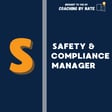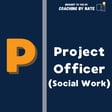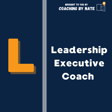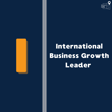Become a Creator today!Start creating today - Share your story with the world!
Start for free
00:00:00
00:00:01

Character FX Supervsior: Meet Alfonso, he followed his childhood passion and now works on large Animated Feature Films
Sometimes following your childhood passion will lead to your dream career. Alfonzo didn’t have a straight career journey (but who does!), however, following his passion for gaming in his teens, led him to a fulfilling career in animation and his current role as a Character Effects Supervisor.
https://www.thecareerchangecoaches.com/
Transcript
Introduction to A to Z Jobs podcast
00:00:05
Speaker
Welcome to A to Z Jobs, the podcast that delves into the fascinating world of careers, one profession at a time. In each episode, we'll deep dive into a specific profession, exploring its history, requirements, challenges and rewards. So get ready to expand your horizons, challenge your perceptions and discover a world of possibilities. I'm Roxy. And I'm Nate. And we're excited to host you on this journey.
Meet Alfonso: From Gamer to Effects Supervisor
00:00:28
Speaker
In this week's podcast, you meet Alfonso, a teen gamer who found his passion in character effects. And now he supports others chasing their dreams as a supervisor on a large animated feature film. Hello, Alfonso. Welcome to our podcast. Hi, Rog. Thank you for inviting me. No worries. Um, I think we'll dive straight in and we'll ask you what you do for a living. So I'm a character effects supervisor. I'm based in Sydney, Australia.
00:00:59
Speaker
For those who doesn't know what character effects a supervisor stands for, it's pretty much I take care of their head and close simulation for animated movies. VFX are animated, but I specialize in animation movies. So animation movies, and what would a day-to-day look like for you? What's the tasks that are involved in your job?
00:01:24
Speaker
For my youth, I will devise the type of task like in three main categories.
What Does a Character Effects Supervisor Do?
00:01:28
Speaker
I have mostly like what you would call technical task or artistic task or management task. So if I start with a technical task, those are mostly taking care of the pipeline or the tools that the artists are going to be needing, either developing myself or asking others to develop tools like doing investigation about ongoing technologies, new emerging technologies that we want to implement for the department.
00:01:53
Speaker
as well as actual improvements in the tools that we have. As for the artistic side of it, what I mainly do is I review the people who work, like in terms of shots or characters, so they show me their work, and I do daily, so I do rounds, and in that I give them feedback, and that feedback is based on the artistic vision of the director.
00:02:15
Speaker
So pretty much, let's say that I'm the speaker of the director within my department, and I translate the art here as a artistic vision into my artist job.
00:02:25
Speaker
And the last one will be my management task. So those are different types of tasks and those are more related with dealing with people, especially artists. So you have performance reviews, you will have like the day to day task of organizing, bidding, assigning tasks to artists, making sure that they are up to date on everything, that they have work that is tailored to their skill set, that they have an ongoing progress and an ongoing development on their careers as well.
00:02:54
Speaker
So those are the main three categories. Also, there are lots of very tiny small tasks, but we could put in all of that in those three main categories. It's a very good breakdown. Could you just tell me a little bit more about what a character artist does? So you manage, say, a team of
00:03:17
Speaker
probably 40 people at the moment, sometimes 20, sometimes 10. And what does that character artist do that you are managing? So for us, we don't have many different names, depending on the company, depending even on the industry, because on the video games world, that's a completely different story. But depending on the industry or on the company, what we mainly do is two tasks. Those two tasks are always head and cloth. So that's what
00:03:45
Speaker
our breath and body is pretty much cloth and hair. So the artist in the department, what they take care of is the simulation of those characters. Some other departments in other companies can take care of, for example, the grooming or tailoring the clothes. But in my specific case as of today, what we mainly do is the hair and cloth simulation. So they make sure to ingest the animation delivered by the animation department
00:04:09
Speaker
to take those clothes that are coming from animation, and we do a simulation.
Enhancing Storytelling Through Character Effects
00:04:13
Speaker
And I would do this pretty much to enhance the animation, to add something to it without having necessarily to distract from it. There are specific cases where our work is part of the storytelling. As, for example, you have a character that is on a storm, and you have the hair, and you have the clothes, and that hair and those clothes are telling a story. You just see the character facing the storm and very strong wings, but the clothes are not really moving.
00:04:39
Speaker
It doesn't really give you the credibility as when you add that extra element that are the clothes. So the day-to-day will be pretty much creating those character setups that we will be using on the shots and then doing those shots. Brilliant. Thank you. I added an extra question in there, so. I know. You can add as many as you want, Josh. And every time you need me to clarify something, just say.
00:05:07
Speaker
I just think that it's kind of hard for anybody that's never been in the visual effects industry to try and grasp what you might be talking about. So it's taking say a famous movie about a rabbit that wears clothes and you add that character.
00:05:23
Speaker
to that rabbit, you make that rabbit look more realistic because the clothes move with the fur and the fur moves to the right way. It almost makes that rabbit look human when it's interacting with other humans. I've seen you take an elephant and make a huge difference with its eyelashes and the amount of time and effort you took on
00:05:45
Speaker
elephant eyelashes to make it look beautiful and amazing. And that's, you know, a character artist. It's that passion for the cloth and the fur and the simulation around that, which is really exciting. I've learned a lot about clothes being friends with you. We don't have other secondary tasks to make those realistic animals, as you will say, realistic characters. For example, we don't know a lot about
00:06:14
Speaker
anatomy because we simulate muscles, we simulate tissue, we simulate the skin. So a character effects artist is someone who has great knowledge in not just animation because you need to have the eye for being able to judge what is looking good and what is not looking good.
00:06:30
Speaker
But for naturalism as well, in the sense that you need to be an observer. I constantly look at people, how they move, how the clouds react, and that's something that you implement on a daily work. But not just only that. It depends on the company that you're working. You might be taking care of all of these creatures, all of these muscles, all of these fur. They call off these crazy other type of effects that are on our hands. An animal or a character, even digidables. Digidables stands for digital double of
00:06:58
Speaker
pretty much of a character, it would be like an animated character that is the copy of a real actor. And for those, also you need to have tendons that get triggered every time, like a character is grabbing something with a hand, or things like that. So I would say we take that animation and we take it one extra layer. We add that layer of complexity without having to distract from it.
00:07:23
Speaker
It's definitely a department that's grown over the last couple of years. It used to be something that was almost across the effects department and the assets department, and now the character effects has become its own.
00:07:40
Speaker
big entity and it's just adding more and more detail to these amazing movies so it's definitely a new thing in the visual effects industry that everyone is still working out but there's so much potential for it and there's so much going on with it that it's actually really exciting to be a part of. So I might take on to my next question on how did you get started in all of this?
Alfonso's Career Path: From Teen to Artist
00:08:07
Speaker
I guess this kind of started a long time ago, like almost probably 19 years ago, when I was 14 years old and I always wanted to start working on video games. So I always was curious about 3D, about how to work on 3D, how to become an artist for 3D. I didn't even know there was such a thing. And by the time when you were talking to your parents and saying, I want to make video games, it was there to me.
00:08:35
Speaker
Like, I don't know, it's like another type of mentality that they think that making video games is playing video games. At the beginning, you also kind of think that. So when I was in age to go to university, I started a degree on video games.
00:08:49
Speaker
I learned lots of coding. I learned lots of 3D principles. I learned about real-time technologies, about Unreal, about Unity, like lots of different topics. But I would say after two years, almost three years of studying video games, I was becoming into the realization that I wasn't really playing video games. And video games is a hobby that I always had all my life. But let's say that
00:09:16
Speaker
If you are baking at work, you are not that keen on going home and starting to eat lots of sweets, something like that. So I wasn't really doing what I liked the most. And it was consuming video games, consuming movies. So I just took a back time off and I started thinking, what should I do now? What is related with my actual, my current skill set? And how can I apply it to? So animation and VFX came.
00:09:44
Speaker
in my way. I always loved animation, and I can translate most of the skills that I have to the animation world. So I started over again another degree. After starting that degree, after the first year, I got to offer a trainee, like an internship
00:10:04
Speaker
a studio in Madrid, like an international studio. So I got lucky enough to, for the second year, third and fourth year, start working at the same time that I was studying. And that's kind of how I started in this world. And I started on render rendering. So for the first year, which was my second year of university, I was working on render. That gave me a lot of visibility about how everything is working, what the other departments are doing, how everyone works within a production.
00:10:32
Speaker
but that's not really how I started on Character Effects. The way I started on Character Effects is with the outcome that they offered at the moment. So there was a lack of Character Effects artists by that time, as usual, and they offered training to 25 persons or artists within the company.
00:10:49
Speaker
And I was one of those. So as I was working on the farm, I had really good knowledge of how everything works, how you simulate, how you send to the farm. So I knew all of the basics. So what I made sure is to be the first one, getting stuff done, getting things approved. So as I was pretty much on a learning background on a daily basis, because I was doing it, I was at university.
00:11:13
Speaker
six, six, eight hours of uni, eight hours of work. I was starting to learn a lot about clothes simulation as well at work. So I was putting loads of hours into it. And when we finished that bootcamp and they started offering people the possibility of joining character effects, they offered me and another two artists the possibility of joining. And that's how pretty much my journey on clothes, hair, fashion started. That's amazing. So in terms of,
00:11:42
Speaker
If you were to talk to your 17-year-old self again today and give advice on how to do this quicker or get where you are faster, what advice is there any different path you could take? I think it will be very important and it's very important to have a clear goal of what you want in your career and what you want to get in your career. Up to what point do I want to get?
00:12:06
Speaker
So for me, it was when I realized what I wanted to become, that's obviously something that keeps on evolving over the years. Because first you want to be, oh, I want to model environments for video games. And then, oh, I want to do animation. I mean, you realize there are thousands of animators that are better than you, that draw better than you, that can do better things than you. So you start trying other things. Oh, effects. Effects is great. I like effects. And there are a thousand people in effects, in character effects. OK.
00:12:35
Speaker
Something similar, my goal is to become a VFX supervisor. What is the shortest ladder to get there? So if you put 1 plus 1, pretty much, I would say my advice would be focus on what you like. Don't forget about enjoying because life is not just working.
00:12:54
Speaker
many things that you learn or that help me on my daily, my day to day work is things that I haven't done through studying, but through dealing with people as well. So as you need to learn about all of the academics and whatever, all of the skills that you need for your day to day, you always cannot forget about living. Yeah, it's all about the people, isn't it? It's what you can learn from the people around you and
00:13:20
Speaker
especially in an industry like ours, getting to know one person could change your life moving forward. So when you're young and at those schools,
00:13:32
Speaker
you should be going to those events. If you're trying to change your career and move to individual effects, you should go to those networking events, those social events, because at the end of the day, artists are actually incredibly friendly and lovely people and they will take the time and effort to watch you real, watch what you worked and
00:13:50
Speaker
Someone like Alfonso has an entire array of links that he sends all of his juniors and anybody that reaches out to him on LinkedIn. It's a whole thing of, this is where you would start learning a software like Houdini, which is what you guys use. And some character studios also use Maya. And it's just finding those sort of stepping stones, isn't it, on people. It's the weirdest thing that anything to do with film is really, really about people.
00:14:19
Speaker
And it's that cliche saying of who you know, but it's also what can you learn from them? And like you said, it really moves you much faster in your career and just asking as many questions as possible, right? Exactly. Like knowing the right people will guide you wherever you want to go. Like most of the times when I got something, it's the people that you know on what you get or what you get informed about jobs or even you get recommended or even your first steps.
00:14:50
Speaker
I would say it's important. It might be frightening at first when you are just a student to order someone or to just reach out to someone who is a professional at working because you might be thinking, okay, this person is going to be busy or you're going to have something else to do, something more important. I will say that in my opinion and from my side, yeah, I might be busy. I might have lots of things to do.
00:15:12
Speaker
And I may take two days or one week to get back to you, but I'm going to get back to you and I'm going to offer as much help as I can. And I would say like most of the artists are like that. We like sharing. We like learning from others. So learn from others, but offers, offer back to the community as well. So this is just giving and receiving. You cannot expect to go to someone and just ask for something or ask for, okay, mentor me or.
00:15:38
Speaker
spend an amount of time with me and you don't know me or there are different approaches to different people. You just need to think, how would I like to be approached if I was in that situation? Normally that works. Yeah. Are you feeling inspired by everything you've learned so far? Keep that momentum going with our four-part Career Change Made Easy course. Dive deeper at thecareerchangecoaches.com. Now enjoy the rest of the podcast.
00:16:09
Speaker
Yeah, exactly. It's just asking the questions because at the end of the day, it's a real person on the other side. Exactly. Something else I got from your story was just giving it a try. So you started university, you knew the general direction, but you didn't know what it was in that direction. So, you know, so often we just spin on the little details and we don't, we just get stuck.
00:16:31
Speaker
But it sounds as if you needed to just dive in and get that exposure to them and find out what was out there. So I think that's another fantastic point you've made. Oh, definitely. I think trying, making mistakes, learning from them, falling, raising up again. That's what going to take you wherever you are. If you never start, if you never
00:16:55
Speaker
there to do it. If you never go and try, you'll never have the chance of keep on going, of progressing, of changing your career or changing your life. And it's just that first decision that might be frightening, might be difficult, might be killing for you. Because you, I will say, the older we get, the more afraid we get of doing things,
00:17:20
Speaker
And what I was thinking the other day is that why are we more afraid now of trying new things, of jumping out or like starting new careers, of switching our lives? And I thought it might be because we have more information or because we think more about the consequences of that. What if? What if? What if he goes wrong? What if he goes...
00:17:40
Speaker
Not as I expect. What if I fall? What if I... No. When we are kids, when we are younger, we don't see what if this goes wrong. We just say, okay, I want to get here. This is my goal. I'm going to fight for it. And that's what you need to do every day. If you keep on thinking on the negative things in life, you will miss on all of the positive things. My mom always used to say to me, negative things are always there and will always be there. We need to think on the positive and focus on them.
00:18:08
Speaker
Like chasing for negative things is just going to bring you negative things. But looking for the positive stuff, pushing yourself, being better every day. If you do a tiny effort every day and you compound that effort over time, you can get everywhere you want. Absolutely. Roxanne, I had that conversation just before we jumped on the podcast.
00:18:28
Speaker
I was talking about how I was standing in front of the sea in my swimsuit today because my husband Dan had let me swim after his surf and he was looking after our little one and I was standing there. I didn't get in the water and you know me, I love the ocean. I will get in anywhere. I couldn't get in. I just, the nerves hit me. It was a new beach and I just, I got up to about my waist and chickened out.
00:18:54
Speaker
It's like, I can't do this anymore. I've hit rock bottom. I'm going to change tomorrow. But yeah, just everything hit me. It was like, I'm in a new beach. There's no lifesavers. And like, literally I listed off everything negative. And tomorrow I'm going back to give it another go because I can't do that again.
00:19:16
Speaker
But, you know, those tiny steps that you're talking about, unleash two worlds for you. So, you know, going to university and studying games, we realized that's not something you're actually interested in doing, but it opened up the world of games to you and the understanding of how that works.
The Visual Effects Community and Its Challenges
00:19:32
Speaker
And then stepping into the visual effects industry and learning how much of an international and huge industry it is, but it also feels like a small family. It's weird. Everyone knows each other and they're all very approachable. So it's sort of that lovely environment that you can kind of put your toe into and get to know a bit more just by talking to people. So yeah, it's awesome.
00:19:59
Speaker
Cool. I think our next question is, what is your favorite thing about your job? People? I would say dealing with people. I like dealing with people. I like learning from people. I like just being there for a team, having a team that you can manage.
00:20:21
Speaker
I like having smart people around because smart people tells you what you need to do. And pretty much you hire smart people because you want to know what to do and you want to improve. You want to keep on going. You want to offer the best, not just for your team, not for your company, but for yourself. So it's something that you keep on pushing yourself. And from the very beginning, I would say since I was young, I'm always being a people person. So someone that really
00:20:49
Speaker
gets invigorated by being surrounded by people, good people. And as you were mentioning before, this is a really big but small industry. You really do create deep connections in low time with people that otherwise will take you years. I can imagine that you build a connection within working on a movie with someone in just a few months that you wouldn't build
00:21:13
Speaker
working on a apartment store with someone else, for example, in years. I think we are so closely related to each other. We are all such a small part of something that big that you really emphasize with the rest and you really learn a lot from the people. So I will say that that's what I enjoy the most, people and learning. There is
00:21:35
Speaker
super smart people that I work with, way smarter than me that I run from every day. And it's that compounding that you learn a tiny bit every day, a tiny bit, a tiny bit, that when you look back and you're like, oh my God, like over the last years, I evolved so much in so many things that I never thought of or I never considered I could evolve or I could improve or I could learn from. Yes, but
00:22:00
Speaker
I would say people is amazing. You can learn from everyone, from the smartest, highest senior that you can find, supervisor, VFX2, or from a union that comes from university two days ago. Normally, those are the ones that give you more to think of and more things to consider from a different point of view. The things that are fresh, the people that are fresh, because they look at their fresh eyes.
00:22:25
Speaker
It's weird because you can also learn from the people that aren't doing it right and have approached it in the wrong way as well. You can kind of relate in some areas and as a manager, it pushes you as well to see how to teach differently or how to communicate differently and move that forward. So yeah, it's awesome. So on the flip side then, we've talked about your favorite thing. What are the challenges or what are the negatives about this job or this field?
00:22:59
Speaker
I would say it's also related to people, but I'm a very emphatic person and having to take difficult decisions or communicate difficult decisions that will impact people's lives, that is still something that I really struggle with. But I really make mine something that
00:23:15
Speaker
I think it's more difficult for me obviously when everything goes well and you just need to communicate with decisions or with news to the people like everyone is happy but I think those moments where you need to communicate something that is going to impact someone's life in a negative way is when you
00:23:34
Speaker
When you have those more difficult moments that are more difficult to approach that you feel more personal to you because you see yourself in that situation. Maybe you've been in that I've been in that situation before. It's not that I.
00:23:47
Speaker
just starting from this industry as a supervisor from day one. So I think seeing those situations from the other side, from the management point of view, I have to tell you something that might not be as good is what I don't really like the most.
00:24:07
Speaker
It's hard. It's like those negative thoughts that you got to sleep with, right? Because you do, you live it because you're affecting someone else and it just stays with you a bit. But they are inevitable decisions because at the end of the day, it's movies got to be better or it's got to.
00:24:22
Speaker
go longer with less people or maybe that person just hasn't researched enough or done enough training with that software and they have experience elsewhere that's perfect but just for that specific elephant or that specific creature and they not work.
00:24:42
Speaker
I would say the nature of this job as well is that the nature is very good, but it can be tricky because it's very good. Why do I say it's very good? Because it offers you to travel, to get to new places, to move around. If you like traveling, if you like meeting new people, changing environment, getting to know the world and getting paid for it, it's the best industry you can ever go for.
00:25:06
Speaker
if you want to just go somewhere and build like a 15 years old life or like that's gonna be my definitive place you're gonna get there or it's gonna take more time it's gonna be more challenging so productions studios are mostly like roller coasters they go up and they go down productions ramp up and productions ramp down so you need to
00:25:29
Speaker
to make sure that you have the right amount of people for those times, and sometimes you will need to hire lots of people, sometimes you will need to let go lots of people, so it's those tiny things as well that when they do something good, like those tiny community decisions that you have to communicate that might not be depending on you or depending on anybody else other than the nature of this job, is that can compound over time and can man you out more.
00:25:53
Speaker
But then you just stay one month on vacation and that's fine. Well, then the movie ends and you kind of reflect more on the entire thing together and people become more resilient for it. But you as a super manager, you kind of go, oh, you know, those tiny little things they do chip away at me. And at the end of the day, that's how it makes you a good supervisor because you care and you take each decision
00:26:20
Speaker
in that realm of understanding, right? So you will always put yourself in someone's position before acting or before moving that forward. If you had any advice for anybody who was first starting in this industry, what would it be?
Curiosity and Learning in VFX Industry
00:26:41
Speaker
Be curious.
00:26:43
Speaker
Learn about everything. This industry is massive. This industry offers so many different possibilities. It's not just the people making the 3D that are making the movies. We have so many different people that are involved in the animation in the VFX industry that you have such a wide spectrum of roles that you can cover, that you can go for. It's like maybe
00:27:06
Speaker
doing clothes is not for you, but maybe painting pictures, textures, maybe just moving cameras, layouts, so I would say research as much as you can and try to understand what each of, and titles, like what are your day, what's going to be your day today? If you become a surfacing artist, if you become a modeling artist, if you become a character effects artist,
00:27:28
Speaker
I will say possibilities are so big, so wide, and that you should be researching affairs, okay? What do I like to do? What does it make me happy? For me, it's my important is how do I feel the night before I need to go to work? Do I feel encouraged? Or do I feel sad? That might be a good tip. Yeah, it's a big one. So you mentioned you went to...
00:27:57
Speaker
I was gonna move on. I just always have to say this because when I started in the visual effects industry, I didn't actually know what the difference was like I actually kind of embarrassed myself in a meeting.
00:28:14
Speaker
Everybody calls visual effects, special effects. So when you're watching a movie, they'll just call it special effects. Whereas special effects is when you actually blow up something in real life and visual effects is when you blow it up on screen. And that is one tip that I will, for any job interview you ever go into, make sure you get those two things correct.
00:28:38
Speaker
Exactly. If you want to blow up things on the screen, just make sure that you are letting them know. Yes, exactly. Sorry, Nathan. Good advice. And then you mentioned university. So that was a great part that you took. So what was the name of the degree and what was an alternative way maybe to go about it?
00:29:03
Speaker
So when I started studying, that was 20 times. There was a limited amount of studies related to my role, like graphic design. I did actually study one year of graphic design, two years and a half of design and development of video games, and then four years of digital animation degree. I think it was called digital animation. Yeah, it was on Madrid.
00:29:31
Speaker
Esmé was the first university, then OTAF was the second university. Now there are many. There are many different universities, master degrees, many different specializations as well. In every university I would say,
00:29:47
Speaker
you are going to be getting the overview of the work. They are not going to really form you on something specific. You are going to know, have general knowledge about how movie works and lots of different concepts that are really going to help you out in the future as drawing, as anatomy, as like all of those beauty principles that apply to any artist and that you need to apply on your daily job. Because at the end of the day, we are
00:30:15
Speaker
We are artists. I like to say we are artisans, but they say we are artists. So yes, all of those things really help a lot. But as well as doing your own research, when you know what this is about, try to specialize on something. Yeah, there are generalists and there's people that is good on everything. But from my point of view, you specialize on something is where you are going to be giving the best of you.
00:30:41
Speaker
Where would you go to find that kind of information? As you mentioned, visual effects, it's a whole pipeline. It's called a pipeline. You get a movie shot if it's a visual effects movie, and that gets handed over to you, and you have all this real-time footage. And then you have to implement characters or animation into that.
00:31:04
Speaker
14 different departments in a visual effects company and that's not including HR or the facility departments. That is the 14 different departments that work on a visual effects movie or an animated feature. Are there any kind of resources that you would recommend or educational things to get stuck into? You know, someone does research character effects today and they go, okay, well, where would I start?
00:31:33
Speaker
If you can find someone that can coach you or can mentor you, someone that has real experience in the industry that you're trying to access, that is suffering any type of coaching or mentoring or something, at least
00:31:47
Speaker
reach out that person, book a meeting with that person, and see if they can offer you what you need or the knowledge that you're looking for. Because they may not be giving you the knowledge, like, oh, do this course or do that course. But they may be able to point you in the right direction. At first, what you're going to be needing is someone to point you in the right direction before you start digging. And obviously, you cannot go to someone and say, hey,
00:32:14
Speaker
A2C, what do I need to do? I want to become, I mean, if you get a coach that can do that for you, that would be amazing. If you can get someone with experience on career progression or access into the industry or the type of resources available to the public, that would be the best for me. If you don't have access to those things, obviously you will need to be a bit more of
00:32:40
Speaker
learning on your own. So LinkedIn is lots full of professionals and then there are many pages with 3D information like different ways of starting I would say. YouTube is free to start on YouTube. YouTube is great. It's also looking at maybe some short courses in your area. So if you're in Sydney
00:33:01
Speaker
taking part in the UTS Academy short courses. If you're in Melbourne, RMIT and AIE run short courses that give you a little like a little information about their masterclass and their masterclass is a year's worth of information and they teach you how to be in the industry and how that works and
00:33:24
Speaker
what dailies means, what rounds means, how a production team look after you and things like that. And then for somebody also starting straight away in the industry has no idea about it. Look up Penguins of Madagascar DreamWorks pipeline on YouTube and you will see a full breakdown of every department in an animated feature movie and the Penguins of Madagascar teach you the little penguins tell you what each person does.
00:33:54
Speaker
And you can figure out, you know, if one of those things were for you. Like I think if I was, if you talked to me when I was in uni studying cinematography, I probably would have wanted to become a layout artist. But now today I know that's something I wouldn't be good at, but it's camera related and the two passions in each other. Um, so our last question is a fun one. Um, and it's hopefully going to create a couple of nice emojis later on for all of our,
00:34:20
Speaker
our websites and things. What is the most inspiring quote that keeps you going? Is there one that sinks in with you? I would say maybe not really famous one. There are many really famous quotes, but I say it's something that I've been working over the interview. Life is constantly evolving. A small therefore compounded over time can make a huge difference in someone's life. You cannot imagine.
00:34:48
Speaker
like a tiny thing that you can learn on a day over a year and make a massive difference to your life. That's good, but it doesn't have to be, um, the smaller ones are better. Exactly. Yeah. Awesome. Is there anything else that you want to talk about when in character effects, visual effects? Not really. If you want me to tell you anything else or clarify anything or whatever you want.
00:35:17
Speaker
Yeah, is there anybody in your team that you've seen join the visual effects industry later on in life and thrive? How do they do it? Is there a case study you could talk us through? I would say friends of mine and even myself, I didn't start university with 18 years old. When I started in this industry,
00:35:39
Speaker
professionally working, getting paid for after signing a contract, I was 24. I know people that is 27. One of my leads was 27 when he started working on the industry and is one of the best that we have as of today. And many other people that, I would say this is not really an industry that defines you with an age or I don't want to interview someone
Inclusivity in the VFX Industry
00:36:04
Speaker
I don't have any consideration for the age of that person, or you can be 20, you can be 60. For me, I had people working on my department literally from 65 to 18, all the way to 18. And both are validarities, and both are giving things, and both are reporting to the department. So it's never late to get started on this. What if you just don't retire from another
00:36:28
Speaker
that was physical, that was construction. And you want to try something new because you want to keep on using your brain and learning something new. Why not? At least you're going to be in an office. It's going to be a more relaxed type of yoga. But you're going to keep on feeding your brain. That's what you ultimately need to do. Yeah. We're going to keep inspired. It doesn't matter how old you are. Exactly. Well, thank you so much for taking the time today.
00:36:57
Speaker
I know what is, whenever you need me.
00:37:25
Speaker
Thank you for joining us on this journey. Don't forget to subscribe and hit that notification bell. So you never miss an episode of A to Z Jobs. Remember, your dream career could be just one episode away.
00:37:41
Speaker
Are you feeling inspired by everything you've learned today and ready to take the next step with your career change journey? Dive into our four-part Career Change Made Easy course. We will help you gain career clarity, understand your transferable skills, and put them into play with application, negotiation, and interview advice. Head to careachangecoaches.com.



















